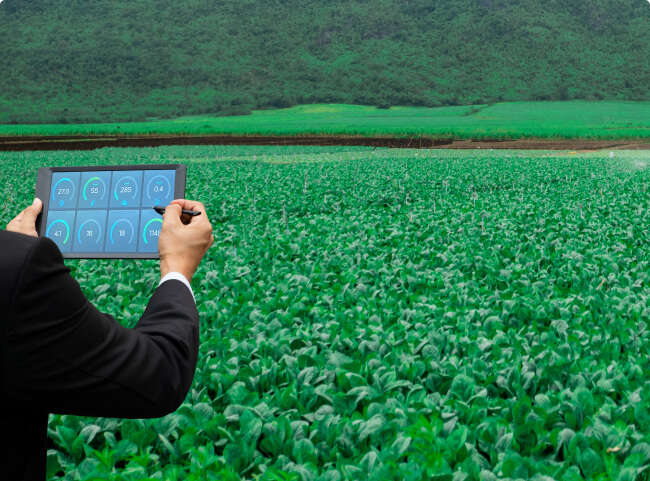Precision Agriculture is an increasingly popular farming management system that leverages technology to optimize crop production and reduce waste. The system relies on collecting and analyzing data from a range of sources, including sensors, drones, and satellite imagery, to make informed decisions about farming operations. This approach to farming can help farmers increase yields, reduce costs, and improve overall efficiency.
One of the key technologies used in Precision Agriculture is sensors. Sensors can measure various factors such as soil moisture, temperature, and nutrient levels. This information can then be used to determine the optimal time to water crops, how much fertilizer to use, and other critical management decisions. Alongside sensors, drones are also used to collect aerial imagery of crops, which can be analyzed to assess crop health and growth. This technology can help identify areas of the farm that require attention and enable farmers to make more informed decisions about where to focus their resources.
Satellite imagery is another vital technology used in Precision Agriculture. Satellites provide high-resolution imagery of farms, which can be used to monitor crops and assess conditions on the ground. This technology can help identify potential issues with crops, such as nutrient deficiencies or pests, before they become significant problems. Machine learning algorithms are also used to analyze the data collected by sensors, drones, and satellites to provide insights into crop health, nutrient levels, and other critical factors. By combining data from these sources, farmers can gain a comprehensive understanding of their farming operations and make more informed decisions.
Precision Agriculture is crucial for several reasons. First, it can help farmers increase yields and reduce waste. By using data to optimize crop management, farmers can ensure that their crops are receiving the right amount of water, nutrients, and other inputs, resulting in healthier plants and higher yields. Additionally, Precision Agriculture can help reduce waste by identifying areas of the farm where inputs are being overused or underused.
Second, Precision Agriculture can help reduce costs. By optimizing inputs and reducing waste, farmers can save money on fertilizers, pesticides, and other inputs. This can help make farming more profitable and sustainable in the long term.
Finally, Precision Agriculture is essential because it can help farmers make more sustainable and environmentally friendly decisions. By reducing waste and optimizing inputs, farmers can reduce their environmental impact and help preserve natural resources. This can help ensure that farming remains a viable and sustainable industry for generations to come.
Local LTE networks have become increasingly relevant for Precision Agriculture. By connecting agricultural equipment and sensors to the internet, farmers can create an Internet of Things (IoT) ecosystem that allows for real-time monitoring and analysis of farming operations. This can help farmers make more informed decisions about crop management, resulting in higher yields, lower costs, and a more sustainable farming operation.
In conclusion, Precision Agriculture is a data-driven approach to farming that has the potential to revolutionize the agriculture industry. By using technology to collect and analyze data, farmers can optimize their operations, increase yields, reduce costs, and improve sustainability. With the advent of local LTE networks, the potential benefits of Precision Agriculture are only just beginning to be realized.




